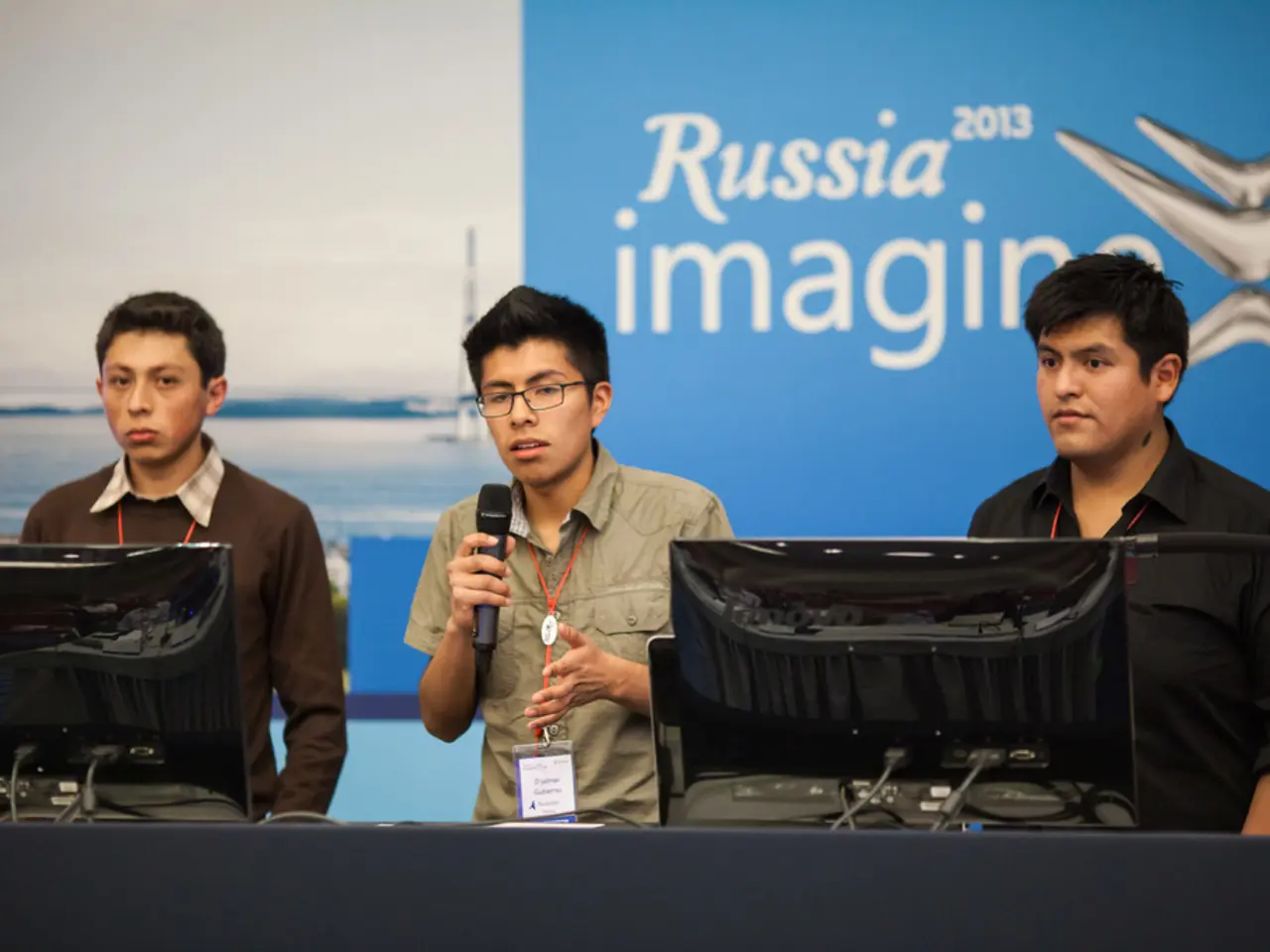Rallying Crowds and Community Groups to Influence Artificial Intelligence Legislation
In Spain, grassroots organizations are playing a significant role in shaping the future of Artificial Intelligence (AI) and workers' rights.
Algorace, a multidisciplinary team with an antiracist and feminist approach, has published comprehensive information about AI and its impact on racialised people and low-income communities in accessible and non-academic language. This initiative is crucial in fostering meaningful public participation in AI, particularly among marginalised and low-income communities.
Effective network-building strategies for these organisations involve fostering inclusive, flexible innovation ecosystems that value lived experience and collaboration beyond traditional funding models. This includes creating open calls accessible even to non-registered or early-phase groups, leveraging institutional testing grounds such as schools or cultural centers for real-world AI applications, and establishing support networks offering technical, legal, and ethical assistance tailored to grassroots needs.
Case studies and initiatives relevant to Spain demonstrate this approach. For example, the ELLIS Units in Alicante and Barcelona emphasize responsible AI research and bring together diverse AI experts, providing collaborative opportunities for grassroots actors seeking to influence AI policy with human rights perspectives. Additionally, the AI4Good subgroup in the OdiseIA CAIRE project, coordinated by Dr. Begoña González Otero, highlights efforts to bridge law, policy, and digital innovation with inclusive, human-centered frameworks, supporting grassroots advocacy in AI governance.
Grassroots organizations also benefit from strategic alliance-building within networks that include academic institutions, policy fellows, and legal experts. They can leverage AI-enhanced collaborative tools and legislative simulation workshops to increase civic engagement and policy literacy among marginalized communities.
In the context of workers' rights, the self-organized workers' rights organization Riders X Derechos successfully influenced the Ministry of Labour to approve the 2022 'Riders' Law', which recognises delivery riders as employees, ensuring salary and welfare protection, rights in terms of working time, according to employment law. The law also introduced the right of workers' councils to request that companies share information on all automated decision-making systems affecting working conditions.
Moreover, combining AI advocacy with advocacy in other policy areas, such as social justice issues or the environment, can facilitate activists' access to policymakers. This approach is exemplified by IA Ciudadana, a network formed by several Spanish organizations, which has engaged, connected, and mobilized people with specific and localized issues. IA Ciudadana has advocated for the democratization of AI and designed strategies to influence policymakers in a collaborative fashion.
Understanding the perspectives of diverse groups can lead to effective capacity building, as demonstrated by the first Spanish conference on AI and human rights in 2020. This event, organised by Algorace, significantly contributed to the first non-legislative initiative on the uses of facial recognition and biometric data at borders in southern Spain.
The process of building new political power is as important as that of driving policy change. Poletika, a platform of civil society organizations and movements, was instrumental in this regard during Spain's last general election. IA Ciudadana joined Poletika, allowing grassroots organisations to engage and empower marginalized people in a deep and long-lasting way.
In summary, effective network-building for grassroots organisations in Spain involves advocating for inclusive funding and participation models in AI innovation ecosystems, partnering with AI research hubs and inclusive policy initiatives, utilising AI tools for civic education and engagement, and collaborating with legal and human rights NGOs to monitor and influence ethical AI deployment and content moderation practices. These multi-faceted, cross-sectoral strategies position grassroots organisations to play a meaningful role in shaping AI policymaking that respects human rights, antiracism, and labour rights in Spain.
- Algorace, with its antiracist and feminist approach, provides comprehensive information about AI's impact on marginalized communities, promoting public participation in AI.
- Effective networking for grassroots organizations includes creating open calls, leveraging institutional testing grounds, and establishing support networks for non-registered groups.
- ELLIS Units in Alicante and Barcelona, emphasizing responsible AI research, offer opportunities for grassroots actors to influence AI policy with human rights perspectives.
- The AI4Good subgroup in the OdiseIA CAIRE project supports grassroots advocacy in AI governance by bridging law, policy, and digital innovation.
- Alliance-building within networks that include academic institutions, policy fellows, and legal experts can increase civic engagement and policy literacy among marginalized communities.
- Riders X Derechos, a self-organized workers' rights organization, successfully influenced the Ministry of Labour to approve the 2022 'Riders' Law', ensuring rights and protections for delivery riders.




